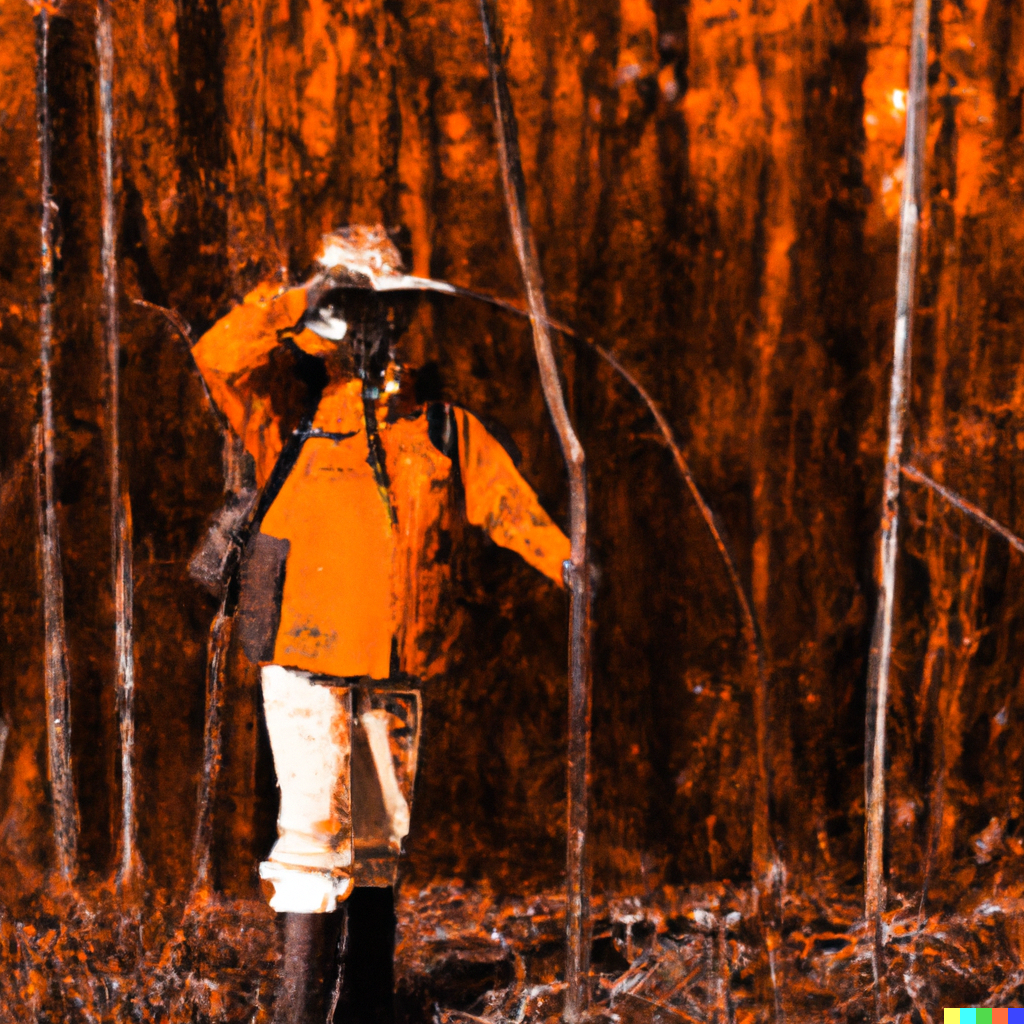Free Shipping for Canadian Orders over $125
Free Shipping for Canadian Orders over $125

Hunting and Environmentalism: A Connection as Natural as the Canadian Wilderness
August 14, 2023 3 min read
Hey there fellow outdoor enthusiasts! The Fall is almost upon us and the call of the wild is a tune that you can't resist. But it's important to remember it’s not just about the thrill of the hunt—it's about connection, respect, and understanding the forests and fields we’ll be trekking. Keeping that in mind, we thought it might be useful to go over a couple environmentally sound practices to keep in mind while you're hunting. Some of these are common sense while others might be new or long forgotten but they're all worthwhile to keep in mind as you head out to get that 12 point.
Respect for Laws and Regulations
Following hunting laws and regulations is more than a legal obligation; it's a pledge to conserve and protect our wildlife. By observing hunting seasons, bag limits, and permitted hunting areas, we contribute to maintaining animal populations and ensuring species' survival. These rules are formulated with expert input and understanding of the ecological balance, making our compliance a fundamental part of the larger picture of conservation.
Fair Chase Principles
Embracing fair chase principles means respecting the animal's right to a fair chance of escape. It involves practicing restraint, patience, and skill, rather than using methods that ensure a kill without challenge. Fair chase fosters a deeper connection to nature and enriches the hunting experience by emphasizing the process, not just the outcome. It's a philosophy that embodies a sportsman's respect for the animal and the environment in which they live.
Utilizing the Whole Animal
Responsible hunting requires honouring the life taken by using as much of the animal as possible. From meat to hide, bones to sinew, every part has a purpose. Utilizing the whole animal minimizes waste, promotes sustainability, and creates a meaningful connection between the hunter and the harvested creature. It's a practice rooted in tradition, but just as relevant in our modern pursuit of environmental responsibility.
Sustainable Equipment Choices
The equipment we choose matters. Selecting non-toxic bullets, and other eco-friendly gear reflects a commitment to minimizing harmful environmental impacts. Using such materials helps prevent soil and water contamination, ensuring that the land remains as unspoiled as possible. It's an investment not just in a successful hunt but in the health and beauty of our wilderness.
Leave No Trace
Nothing is more depressing than stalking through the forest and coming upon somebody's Timmy's breakfast leftovers. The plastic is poison to the environment and the animals, the food scraps screw with the ecosystem and the whole thing is just disgusting. Remember to bring out what you take in and if you have the pack space, maybe grab a piece of trash left by a less consciences visitor to the woods.
Land Stewardship
Land stewardship goes beyond the act of hunting; it's about preserving and nurturing the habitats we enjoy. This means following the afore mentioned Leave No Trace principles, engaging in habitat restoration, and being mindful of our impact on the ecosystems. A responsible hunter views themselves as a guardian of nature, acting with consideration and care to ensure the land remains vibrant and thriving for future generations.
Education and Training
A well-educated hunter is a responsible hunter. Continuous learning about the species you hunt, their behaviour, habitat, and the broader principles of wildlife management creates a deeper connection to the natural world. Engaging with local hunting communities, attending workshops, and staying updated with scientific research fosters responsible practices and a more fulfilling hunting experience. It’s about being part of a community that values knowledge, respect, and tradition.
Recycling Equipment
Reusing and recycling hunting equipment aligns with the ethos of sustainability. Whether it's repurposing used parts or taking advantage of reloading supplies, these practices extend the life of materials and reduce waste. By thinking creatively and valuing what we already have, we contribute to a culture of sustainability that benefits both the hunting community and the environment.
Hunting and environmentalism aren't opposing forces; they're two sides of the same leaf. It's about knowing and loving the land we tread and the creatures we share it with.
Whether you're an experienced hunter or a newcomer eager to learn, join us in embracing this beautiful balance. So grab your pack and let’s head into the great Canadian outdoors, knowing that we're part of something bigger—a tradition, a community, and a commitment to the environment we love.
Leave a comment
Comments will be approved before showing up.
